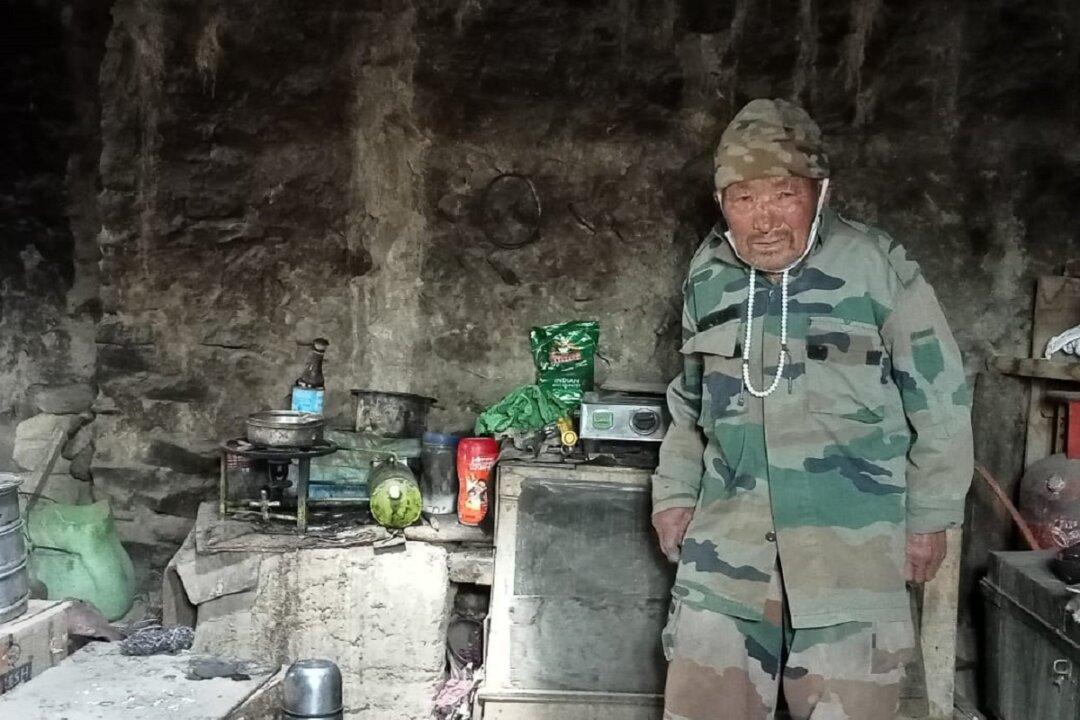PANGONG TSO, India—Eighty-two-year-old Tseten Namgyal is dressed in an Indian army jacket. Age and the tough, intensely cold trans-Himalayan terrain have hunched his back a bit, and his visibly thick-skinned fingers look almost mummified, yet alive. Meanwhile, his candor about having once been a prisoner of war, and the servant and porter of one of India’s most celebrated army officers, is youthful and infectious.
Communist China has started two bloody conflicts with India in the trans-Himalayan region; Namgyal is a rare witness to both—one as a prisoner of war in 1962 and the other as a resident of a village on the de facto border during last year’s clash in the Galwan Valley.





